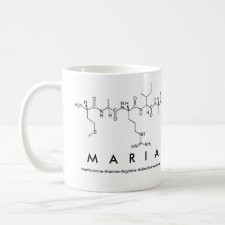
Authors: Simões M, Martins N, Cabrita MJ, Burke AJ, Garcia R
Article Title: Tailor-made molecularly imprinted polymers for dimethoate and deltamethrin recognition: synthesis, characterization and chromatographic evaluation.
Publication date: 2014
Journal: Journal of Polymer Research
Volume: 21
Issue: (3)
Page numbers: Article No 368.
DOI: 10.1007/s10965-014-0368-9
Abstract: This work concerns the development of molecularly imprinted polymers (MIPs) for the selective extraction of dimethoate (dmt) and deltamethrin (dm) from food matrices. To achieve this goal, the non-covalent methodology has been applied for the preparation of MIPs using metacrylic acid (MAA) as a functional monomer and ethylene glycol dimethacrylate (EGDMA) and triethylene glycol dimethacrylate (TEGDMA) as cross-linkers in order to evaluate the influence of the nature of the cross-linker on the efficiency and selectivity of those MIPs for the target pesticides. Non-imprinted polymers (NIPs), which do not contain template, have been also prepared in parallel with the MIP synthesis using the same synthetic protocol to assess the specificity of the interactions. Chemical and physical characterization was carried out using conventional techniques, such as Fourier transform infrared (FTIR) spectroscopy, nuclear magnetic resonance (NMR) spectroscopy and thermogravimetric analysis (TGA). Morphological characterization of MIPs and NIPs has been also performed using scanning electron microscopy (SEM) in order to assess the polymer's surface topography. The performance of each polymer was evaluated by conducting binding property measurements, namely imprinting factor determinations and adsorption studies using high performance liquid chromatography (HPLC). The results obtained in this study seem to show that there is a correlation between the polymer structure (including its physical characteristics) and their binding properties
Template and target information: dimethoate, dmt, deltamethrin, dm
Author keywords: molecularly imprinted polymer (MIP), Dimethoate, Deltamethrin, Scanning electron microscopy (SEM), rebinding studies



Join the Society for Molecular Imprinting

New items RSS feed
Sign-up for e-mail updates:
Choose between receiving an occasional newsletter or more frequent e-mail alerts.
Click here to go to the sign-up page.
Is your name elemental or peptidic? Enter your name and find out by clicking either of the buttons below!
Other products you may like:
 MIPdatabase
MIPdatabase









